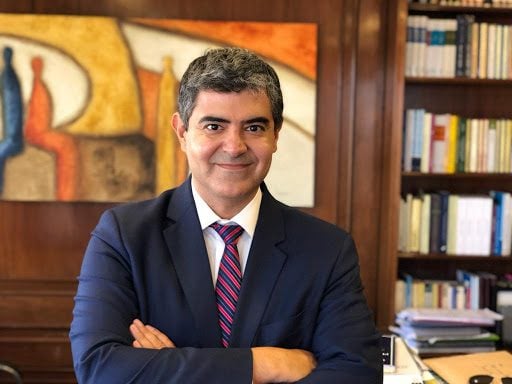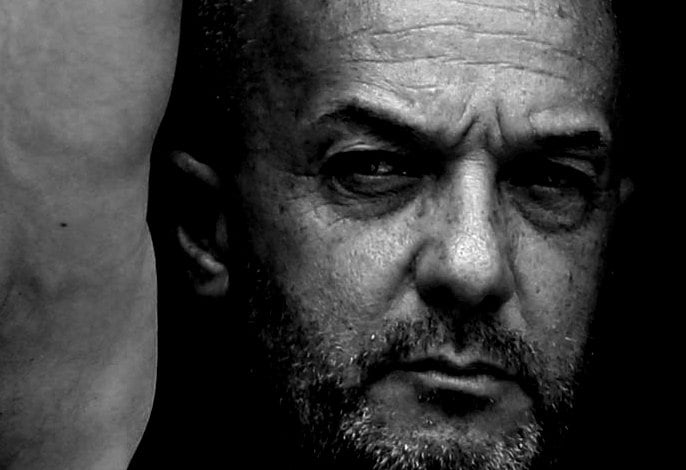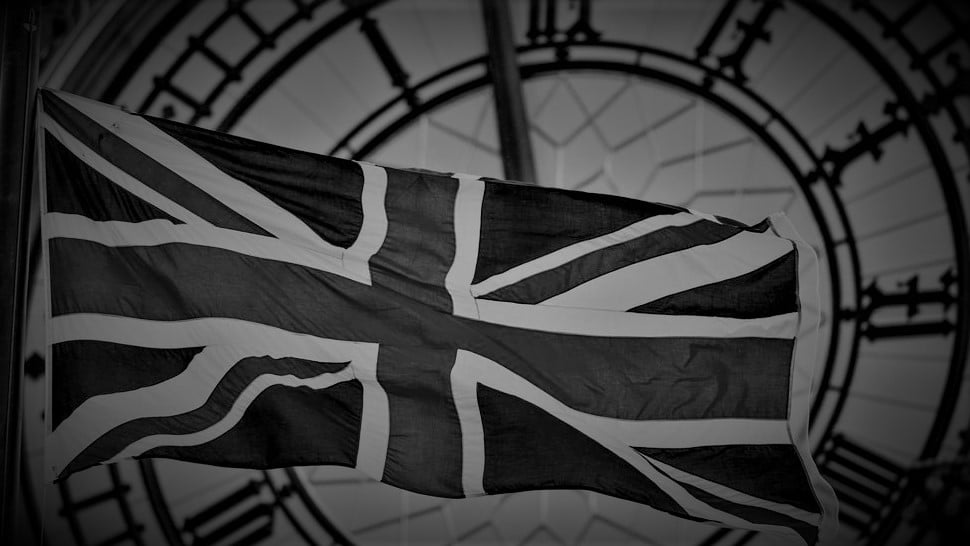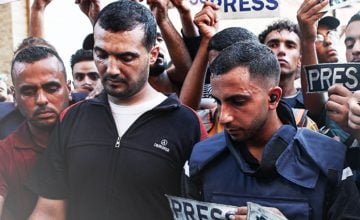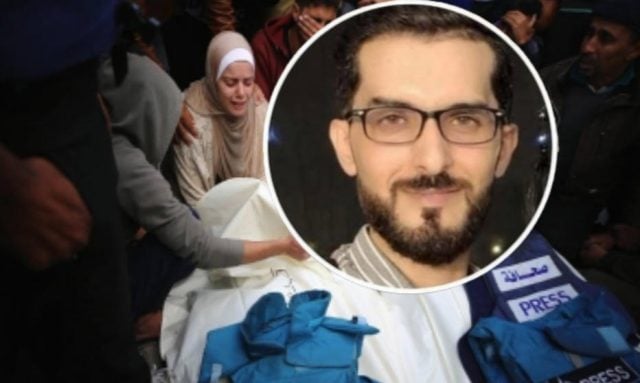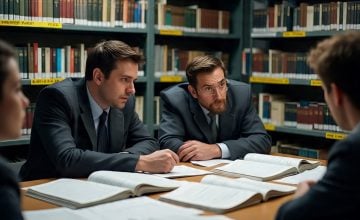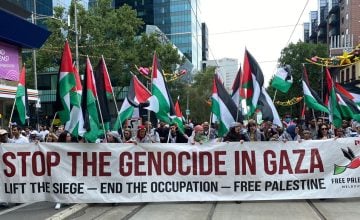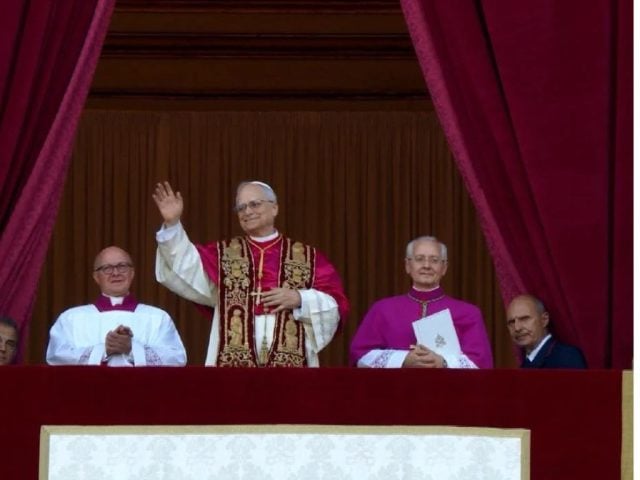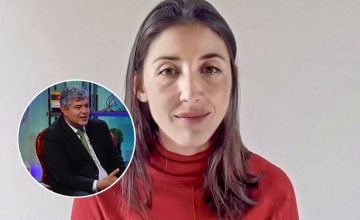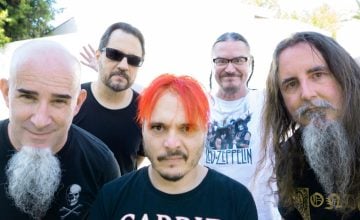By Bruno Sommer in Cable a Tierra.- In our country there have been a series of systematic human rights violations, especially in that period of social awakening, the so-called ‘social outbreak’, eyeball explosions, torture, deaths, sexual abuse, and another series of harsh violations. that were verified by both national and international human rights organizations. As a result of this, a complaint has arisen that seeks to take Sebastián Piñera to the International Criminal Court (ICC).
There is talk in the president’s circle that one of the issues that most concerns Piñera is being tried before an international court. In your opinion, do you think that what is left for Piñera is precisely to take care of his image abroad since his image is already totally destroyed in Chile. What do you know about this?
Indeed, one can conclude from what has been the official discourse of government authorities that the issue related to the criminal prosecution against Sebastián Piñera for crimes against humanity is a matter of concern and that is within the definition, at least of the public discourse that is raised by his administration when facing issues related precisely to what has been the attack on the civilian population by the Chilean police and military forces in the context of the State of Emergency that was decreed from the social outbreak of 2018.
The truth is that this has a foundation, in general, Piñera is a person who has been involved in many judicial processes, related rather to illicit economic activities. We must remember that at some point he was prosecuted for fraud in what was the famous cause of the Banco de Talca, and this later was added to cases related to companies in which he had an administrative position, accusations related to infringement of free competition when he was in the administration or on the board of directors of this company, infractions related to the violation of securities market laws such as use of privileged information, among others.
However, we are now facing an accusation that is very different and that he will not be able to dismantle it in the way that economic power usually does in a country like Chile, which is with a telephone call, the network of influences that can be had by the accused himself or by the people who defend him, or by the business or political group in which he has some leadership.
How did the idea of filing this lawsuit come about, who are you sponsoring against it and in what way do you think it is configured because the lawsuit is for crimes against humanity?
That’s right, it’s for crimes against humanity.
I understand that these crimes do not prescribe. What are the elements that would help us to configure establishing them as crimes against humanity?
The truth is that the idea arises from the verification of a reality that was manifested as evident for several months starting on October 18, 2018, when the police forces carried out a repression that clearly configured not only as isolated crimes against the civilian population, but as crimes against humanity, in our opinion, since we are facing a generalized, systematic attack committed precisely by the police forces against a civilian population, and this also occurred in a context where the political authority, knowing about these circumstances, did not take any effective action to stop this repression. In this context we observe that we are facing a situation that was much more serious than the individual attacks, that there was a true pattern of behavior behind it, that the police action was taking place and that obviously this generated criminal responsibility not only for the police officer who was behind the specific attack, the person who fired or attacked, no, this involved a command responsibility within the Carabineros, but above all, a criminal responsibility for what known as the civil authority.
This is based on the parameters that were established in the Rome Statute, which finally, what it does, is establish a framework of criminal sanctions for these attacks that go beyond affecting the rights of individual victims but instead repudiates the conscience of humanity, and that is what finally has to be made effective through a criminal case.
You understand how the command line works within the government, how an order is executed. Why is Piñera finally responsible for all these events?
The truth is that the acknowledgment from the horrors that have occurred in the history of humanity in relation to what have been the actions of repression, not only of the States but also of groups that in practice exercise power in a certain place, has generated a set of norms, which are synthesized in a very good way in the Rome Statute, and what is intended through these norms is to prevent impunity. For this, this norm establishes certain elements that are taken charge of by the normal defenses that the accused raise in relation to these cases.
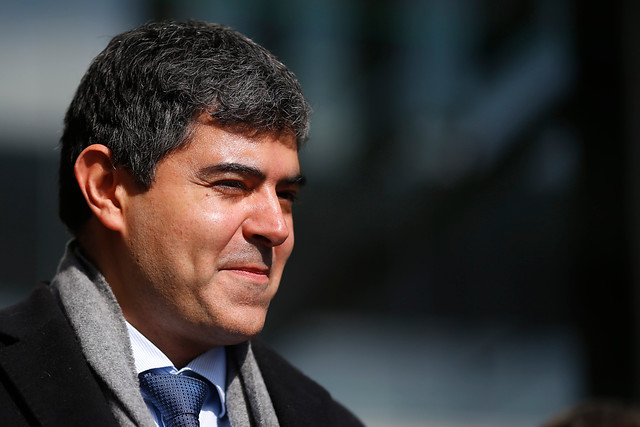
What is usually said by the political authority? It is said, ‘look, you know what, the truth is that there is no direct, written order issued by the president, or one of his ministers, or from the direct military command or the Carabineros – in this case – in which the police personnel are instructed to carry out actions that violate the human rights of the protesters, in this case. Therefore, we have no responsibility’.
This is like a first line of argument that has been wielded habitually by dictators or groups that abuse human rights in a certain territory. The truth is that to face this, it has been established that there is direct responsibility.
The Rome Statute defines a direct responsibility for what the civil command is, establishing then that they are the perpetrators of this type of crime, to be precise what the civil authority is, the military chiefs, or those who act effectively as such, and this, to as soon as they had knowledge that these attacks were being committed and they had not carried out anything effective to prevent it, that is what generates criminal responsibility.
So, the situation of a president or a minister or a police chief, who knows that they are committing these attacks, but that they do not do anything effective, something really effective, not just a public statement, a general appeal, no, it is an effective performance not a salute to the flag, is considered. If he does not do it, he is in the same position as the person on the ground who shoots, who attacks, who generates the injury. This is a special rule that is contained in the Rome Statute, and is also contained in a law that establishes these crimes in our internal legislation, the Chilean one, which is Law 20,357.
So, as I told you, it is not necessary for Piñera to have issued an order, issued a decree, sent an email, it is enough that he had known and had not done anything effective. He did not exercise all his power to prevent this from happening, and in our judgment it is precisely what has happened.
It is a bit undeniable that he was ‘not aware’ of what was happening. Piñera himself made statements such as that ‘we are in a war’, his Minister of Justice, Larraín, said at the time ‘there have been situations that seem to be violations of human rights’. He did not want to acknowledge them directly, but there is sufficient evidence that Piñera was aware of them (the violations) on national networks.
There is concrete evidence about at least this point, since the National Institute of Human Rights met with Piñera on countless occasions, reports were delivered to him while this situation was developing, and he also had reports from agencies Like HRW, Amnesty International, there was also a visit by representatives of the United Nations High Commissioner for Human Rights, and all this was known to the State, that is, this is an undeniable point. He knew perfectly well that the police forces were committing these abuses.
So, from that perspective, the legislation related to crimes against humanity punishes, assimilates the civil authority and the military command that was in a position to do something to prevent this from continuing and did not do so. The legislation assimilates them as the direct authors.
Now, there are other elements, and the truth is that I ratify what you have indicated in that everything indicates that the Government and Piñera are concerned about this issue. And why do I point it out, because normally when the authority refers to these attacks committed against the civilian population by military and police personnel in the context of the social outbreak, they insist a lot that these are isolated events or that they are not a systematic attack.
The discussion is precisely there, establishing that these human rights violations were systematic in order to consider them crimes against humanity. What are the elements that make us configure that the human rights violations were systematic in nature?
First of all, we must point out which are the elements that are required for us to to say that that we are in the face of these crimes, which are quite unique because I insist that they are not only considered to threaten life, the physical integrity of individual victims, but It is also considered that they violate certain principles that are universal, that what happens is that they finally violate the conscience of humanity.
And it is in this area what is indicated here. We would be facing attacks that are committed by State personnel on the civilian population. This civil population does not have to be defined on ethnic considerations, for example , or religious, or belonging to a political party, to a certain group, here it is enough for example and it has been considered that a civilian population can be a group of protesters, which is what happens here.
Here, what unites people is not their affiliation to a certain political party, in fact the social movement was not articulated by any organized force and, therefore, what was done was to attack a part of the civilian population that are these protesters.
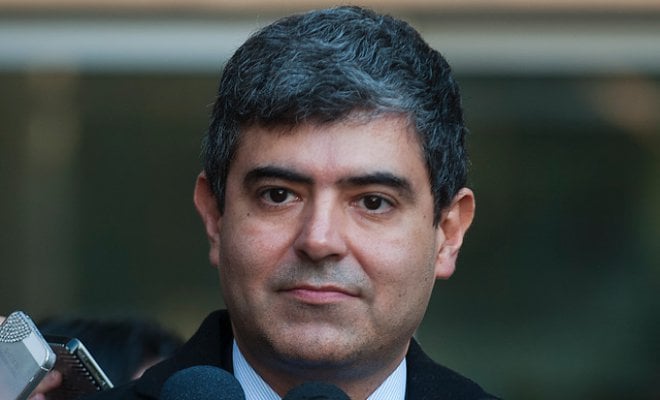
And this has to be generalized or systematic. ‘Generalized’ is when an attack affects many people, and this we have been able to see – for example – what happened in Plaza Dignidad on many occasions generated hundreds of victims in a single act, in a single event, therefore, there is a generalized attack, but it must be generalized or systematic, and this is where a lot of emphasis is placed on the part of the Government because what is pointed out is that there would not be this systematic attack – to say it in some way – because there was no decision by the police authority or the Government to carry out this attack.
However, the systematic attack is basically linked to the fact that there is a pattern of behavior, and I think that in this case, there is clearly a pattern. It is a matter of analyzing how these events developed. Here we are faced with the attack by police personnel on the protesters in the context of the social outbreak, which took place in a similar way and with equivalent results, and this, despite the fact that this was deployed for several weeks and at different points of our country. We have people who suffered eye mutilations from the shooting of pellets by Carabineros de Chile not only on a certain day in Plaza Dignidad but we are talking about many people throughout Chile, for several weeks, in different parts of our country.
There we have a systematic and repeated procedure on different days and places in the country as you point out.
Sure, and this also affected a considerable number of people. It should be remembered that the number of eye injuries and eye mutilations suffered by the protesters as a result of the conduct of the police in our country is greater than 460 people. We are talking about the fact that there is no record in modern history of people who have suffered eye mutilations in such numbers in the context of any social mobilization.
In fact, in all the time that the conflict and the violation of human rights by the State of Israel to Palestine has existed, not so many eyeballs have been ‘exploded’ as in this short period in Chile. You mentioned that there are reports from international organizations such as HRW, such as Amnesty International, such as the office of the High Commissioner for Human Rights, the IACHR. Are these international organizations going to be invited to testify in the framework of this trial?
Of course, what happens is that reaching the International Criminal Court is not such an easy path, but I think it is very likely that we will get there given what the reality is in the operation of the criminal prosecution system in Chile.
I have been a plaintiff in many cases related to acts of corruption, in the Penta case, in the SQM case, in the Corpesca case, which we also obtained a historic ruling a few weeks ago.
However, one can verify that, in general, there is an institutional culture of impunity in Chile in relation to serious crimes committed by high authorities and large businessmen, and that this may eventually apply to these crimes against humanity that are being pursued within our country with respect to Piñera.
And in this area, I believe that there are signs that are worrying. When we presented our complaint, the antecedents were sent to the Prosecutor’s Office, the Public Ministry, and at one point we requested, in January 2019, approximately 100 specific procedures to be able to try to clarify and also prove this accusation, which not only goes against Piñera but also against his former ministers Gonzalo Blumel, Andrés Chadwick, and against the former director of the Carabineros, General (Mario) Rozas, among others. The truth is that we presented this complaint in January 2019 and there was no response, either positive or negative in relation to these proceedings, until September 2019 and only after we denounced in the press the fact that this case was not being investigated, being that it should be, and I believe it is, the most important cause that the Public Ministry in Chile has ever been in charge of since its creation. We are talking about an accusation of crimes against humanity against a president who is also in office.
Well, the Statute of Rome establishes an entity called the International Criminal Court that has jurisdiction for the purpose of being able to hear about these types of crimes.
However, there is a principle called complementarity, this implies that the Court does not directly investigate these types of crimes from the beginning.
Legal instances in Chile must be exhausted first …
Exactly, if in Chile there is no effective criminal prosecution (for example) of these crimes, then one can ask the ICC to take charge of their prosecution because – for example – the conditions given within a specific country so that these crimes can be prosecuted in a real and effective way, do not exist.
I believe that in Chile it is very doubtful, to put it mildly, that we can really investigate and criminally prosecute Piñera for crimes against humanity and this, basically, because of this culture of impunity.
That the proceedings have not started in a timely manner, I don’t know if the proceedings that you requested are already being carried out. If they are not carried out between now and the next few months, could that be a configurative element to say that in Chile there are no conditions and so be able to move towards the ICC?
Without a doubt, not only that no proceedings are carried out, it is unbelievable that it would take almost nine months to answer a plaintiff with diligence in a case like this, but it is also not enough to fill out papers in a merely formal way, here there needs to be a real investigation.
It gives me the impression that for different institutional reasons that are rooted in this culture of impunity, which unfortunately comes from the dictatorship (Pinochet), that is one of the legacies. To have left Pinochet unpunished marked something. It showed that a person can commit the more heinous crimes against the civilian population and the truth is that, at the end, nothing will happen. And this vicious circle of corruption and impunity that has been installed in our country during the last decades makes it very doubtful that an efficient and effective criminal investigation can be achieved.
We are trying to do it here. We believe that there are many elements that show that crimes against humanity were committed. In my opinion it is something evident, there is not only a generalized attack, which would be enough, but there is a systematic attack . Another defense made by Piñera and his entourage is that here there was no State policy for the purposes of committing these crimes and, therefore, it is not appropriate that Sebastián Piñera be charged with crimes against humanity, but you know that the policy does not need to be established through a formal act, it is not necessary an email, an official document, an act, nothing like that, this policy may be a policy that was operated ‘de facto’, enforced in practice by the institutions that were in charge – for example – of public order, and here it is clear that there was a de facto policy, in practice, to respond in a similar way for several months to social demonstrations that were taking place day by day, in different points of the country, with a system of repression that clearly sought to injure, punish the demonstrators, repress the demonstrations to prevent as much as possible that they repeat themselves (more demonstrations) out of fear. That is a policy that was implemented in practice, de facto, in the events that occurred, and in my opinion it is quite clear.
Now, this is a long road that will overcome the contingency. What we are talking about today is not an issue for this week or the next, this is one of the profound issues that established itself in our society, in our country, but we cannot leave a space for impunity, if we leave a space for impunity, the signal for the future is very dire. That would be to say to the people who take charge of the government, the police or military forces, ‘you know what, do whatever you want, at the end of the day they will go unpunished’. And that is unacceptable.
The elements that configure that there was a policy of terror on the part of the State towards citizens are innumerable. In which court was this complaint filed ? Was Piñera’s former ministers already notified? the president himself? How can citizens become part of this complaint?
The truth is that anyone, especially victims, can become a part of this complaint and can file this action. We present it to a court, the courts are the ones that analyze the merits of the complaints and, if there are any, they refer it to an autonomous body called the Public Ministry, whose sole purpose is to investigate crimes and, where appropriate, bring to justice the people who appear as guilty.
This case is now assigned to the Prosecutor’s Office, the Valparíso regional prosecutor, and the truth is that I have not had very good experiences with the Valparíso Prosecutor’s Office, not with the current prosecutor but with the predecessor, who was called Pablo Gómez, who dismantled the SQM case in a further sign of the unwillingness to bring to justice the people who are part of the economic elite of our country for serious crimes.
So, we are trying to carry out this action. However, if there is no progress, I believe that we will end up in the ICC, which is what Piñera is terrified of in reality. Why? Because here (In Chile) he obviously has his network. Here, I think there is an expectation of ending this type of Chilean-style causes, with the phone call, the meeting, the compromise. However, in a court like the ICC, this is not possible, Piñera’s network does not reach there to be able to dismantle an investigation outside the country, and it can obviously affect his businesses.
What period of time are you going to give yourself to be able to configure and understand that the conditions are not in place in Chile to carry out this trial and be able to move towards the ICC?
I think this year, 2021. Many people wonder why they take so long, what happens is that unfortunately, this kind of thing, if you really want to do it, you have to do it well. I insist, this goes beyond the contingency, this goes beyond the specific situation of Sebastián Piñera’s government, what he represents politically today in Chile and everything that his government is doing, This transcends much further, this cause will probably advance to points that are very key when Piñera is no longer in power, no doubt.
However, we have to maintain our will. This is not an attack on the Piñera government, this is an attack on impunity in the face of serious attacks on human rights in our country. And this situation has to come to an end, what happened with Pinochet, with his impunity, is something that cannot be repeated, especially in a situation where there is no dictatorship, at least in formal terms.
So, that is what we have to insist on. We are a group of people, I am not alone in this. We are determined to go to the end whatever it takes to achieve it and we have the full conviction that it is the only way In order to heal these wounds. We are talking about more than 460 families.
Not only are they the victims of eye mutilations, who were obviously harmed by the mere fact of exercising a civic right that is to demonstrate, but we are also talking about families which have been affected by these injuries to their son, daughter, their brother, sister their relatives, and we do not only see the issue of eye mutilations, we also have the defense of other types of cases. We put together a program with a group of lawyers representing victims of the social outbreak, which we are doing for free and we already have many people who we are representing, among others Abel Acuña, an emblematic case of a person who was in Plaza Dignidad, who the day after the famous peace agreement and the new constitution that saved Piñera’s skin, the agreement between all political sectors, the day after that agreement, Acuña died in Plaza Dignidad. He had a heart attack and the police prevented the assistance, it is shocking. They attacked the SAMU personnel with pellets, the SAMU ambulance with jets of water. The SAMU ambulance could not give him a timely resuscitation and that determined that he finally died. This is clearly an attack on the civilian population by what has become ‘de facto’ in a political police, which is Carabineros de Chile, a corrupt police, 35 billion pesos and counting in a fraud of the most important in history. A murderous police because what they have done is not try to protect the rights of those who were in the demonstration, and there are so many people who may be doing vandalism or may be doing some kind of illicit act, no, what they do is attack everybody with everything they have and they care about nothing.
They do it with a clear treachery, with an intention to harm people. One element that strikes me is that there is a low number of formalizations against the alleged perpetrators of human rights violence, despite the large number of complaints there are very few police officers prosecuted. There is even a cover-up on the part of the Government of those who directly committed these violations.
The truth is that this is an element that shows that the conditions do not exist to generate an effective, real criminal prosecution regarding these crimes that have been committed in the context of the social outbreak by State agents.
It must also be remembered that what the Government has done is to shield the Carabineros, trying permanently to guarantee that nothing is going to happen to them. Here (In Chile) – for example – there was a summary of the Comptroller’s Office regarding the generals of the Carabineros high command and what the Government quickly did, without even knowing the background, was to say ‘this has no basis, it is an illicit attack against the Carabineros’ and began to attack the Comptroller’s Office.
That also has its logic because Piñera knows that if criminal responsibility is finally established in relation to the actions of the high command of the Carabineros, then obviously his situation becomes very complicated because he can also be charged and eventually convicted of crimes against humanity. So, he has deployed with everything, he hired as a lawyer not someone from the UDI or from the right, he hires Samuel Donoso as a lawyer, who was a member of the leadership of the Party for Democracy, who was and is a lawyer for the general manager of SQM in cases related to corruption, he is from the PPD, a close friend of Guido Girardi, of the entire PPD to this day. He is Sebastián Piñera’s lawyer.
So, what does this tell us? It tells us that finally there is a network here, this distinction between right and left in our country is very false. It is a facade because here power is protected among power, and that is why I see it is very difficult for Chile to have an effective criminal prosecution of this type of crime, and in this context, the concern is that they will not be able to end this Chilean case with the telephone call, because if they do so they run the risk of ending up in a court where they do not have any influence. They have no possibility of making the call, of trying in some way to dismantle it, a court that doesn’t give a damn about the 2,800 million dollars in Sebastián Piñera’s current account, much of which probably has been obtained in a rather questionable way to put it mildly.
So, a financial speculator who was president of a South American country is not going to do anything to the ICC and there it is possible to obtain an exemplary conviction and that is the fear that Sebastián Piñera has, which is what happens with this cause, that us why he is shielding himself in all possible ways.
But hey, we are going to insist on navigating against the current, it is not arriving and going to the ICC, we are clear about that, but we are also clear about the path to get there and we are going to travel it.
People keep asking how they can be part of the complaint …
This is in the Valparaíso Regional Prosecutor’s Office.
And what can a person, an ordinary citizen, do to join this lawsuit?
There are two categories of citizens who can help, the most important category are those who have been victims of attacks carried out by the police forces in the context of social outbreak, people who have injuries, who have suffered some mutilation, a relative who has died… They have the possibility of filing a criminal complaint against Sebastián Piñera and the Carabineros command for crimes against humanity. That is a possibility, or making a complaint that can be made effectively in the offices of the Public Ministry, in any office of the Public Ministry. The other has to do with people who are not in that situation but who also have a very deep commitment, which is a large part of of the country, with those who have suffered as victims. I believe that the greatest support there is to be able to disseminate this work which, I insist, is not my personal project, there are many of us who are involved in this.
There are different organizations, there is the Chilean Commission for Human Rights, the ANEF also filed a complaint, Senator Alejandro Navarro is also behind this, he presided over the Human Rights Commission when the social outbreak occurred, so you can also contact him. In fact I am working this cause with him and with a group of lawyers, many young lawyers. We are all committed to giving our time, this is not to say that we are charging nothing because this derives from a conviction of minimal justice, of having a decent country and a country without impunity.
So, I recommend that people who have been victims file a complaint with the prosecution or contact Senator Navarro, with me too, the emails can be found online, to be able to file complaints and join this and the people that fortunately have not been victims to support us, because it is very important. There is a communicational blockade of the economic groups that manage the main media in Chile, the written media, television, this will not appear on Channel 13, on Mega, or on national television. Not to mention La Tercera and El Mercurio. This only appears in media that we try in some way to access and we obviously thank El Ciudadano for being able to tell about this part of a brutal reality that wants to be hidden by petty interests, so making this public is also very important and also to support us in what we are doing.
What is going to happen to the political prisoners, what is your prognosis?
My forecast is that many of them will be acquitted, but after long periods in which they will be in preventive detention, that is the problem. Here the Piñera government has generated a set of initiatives that in a way that no one can really explain in a rational and decent way, they have been welcomed by a Parliament where the opposition is supposed to be a majority and this is really scandalous. All these efforts seek to give more powers to the police and to the Government so as to repress without greater control, because ultimately what is sought, in my opinion, is to try to hold the Government of Piñera until March 2022, in any way they can, to the point of repression, and it also seeks impunity, because it is well known that serious crimes have been committed here and that at some point this could end with criminal responsibility in these high spheres.
In this context, what is sought is not justice, what is sought is to repress, and what form do you have to repress? first attack the civilian population that demonstrates so that they are afraid, so that they do not return the next day to demonstrate. The best way is to shoot people in the eyes, that they are mutilated for life, give a sign, an example, so that the rest of the people say ‘you know what, I’m very much against Piñera but I’m not going to leave to risk being injured or mutilated’. That is a political objective and another is to try to lower the bar for the purposes of being able to detain people and being able at that moment to decree high intensity precautionary measures such as preventive prisons, regardless of the fact that it is a process that can last more than a year ( so that) later these people are released, because you have them imprisoned and they cannot come out to protest. And that is the problem.
Much has been said that in Chile there are no political prisoners. Do you know what makes prison political? The prison becomes political not because of the crime or the reason given so as to imprison a person, what makes that prison political is due to the disproportionality, this is the political element.
It is not a political crime to destroy a traffic light in a public square, but what makes it political is that from that fact they leave these people in preventive detention for a year, that is disproportionate. I was in the Penta case, the owners of Penta generated fraud against the treasury, repeated tax crimes, they generated a network of corruption based on illegal financing of politics, they were imprisoned for 40 days. Finally, they were sentenced to ethics classes and then 1,400 million pesos were deducted from their taxes for the judicial defense, which ended in a conviction against them.
Julio Ponce Lerou, who became SQM during the dictatorship of his father-in-law, Augusto Pinochet, but became a billionaire with the Concertación governments, that handed him the Salar de Atacama, which is basically State land, one of the most important mining properties worldwide. So that is what makes this prison political, the disproportionality between the accused and the precautionary measure.
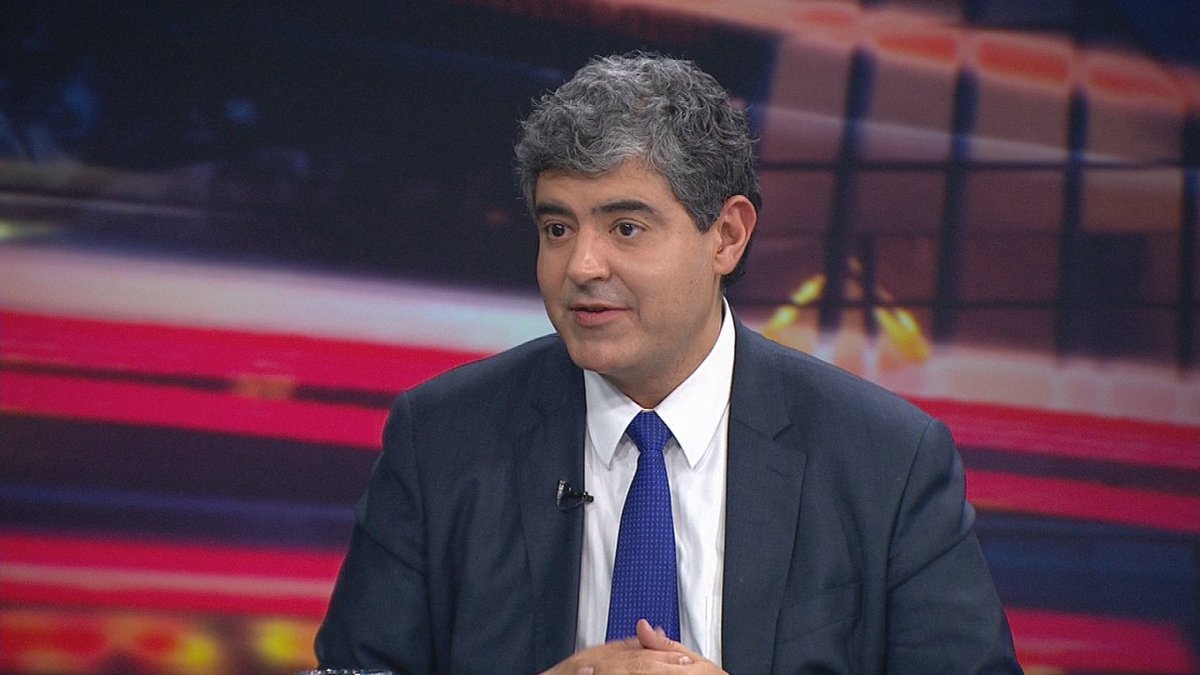
Many of these cases, when they go to trial, the vast majority will end up acquitted. They will go out on the streets, but they were held in prison for a year or more, that is unacceptable in a formal democracy, it is somewhat misleading, it is somewhat hypocritical what is being done and this must be faced in that way. We must not play the game of these gentlemen who say ‘no, this is not technically political imprisonment’, no, I insist what makes this political is the disproportionality of the precautionary measures and we must try to confront it. Unfortunately, this system is in some way colluded so that this does not happen.
Have you not felt fear, where does that courage come from to carry forward and face these trials?
What moves me is the fatigue of seeing such blatant impunity. I have dedicated myself to litigating criminal matters, I have been in all areas, I have been a defender, plaintiffs, I have been everywhere, but at a certain moment of my professional life I began to see something that I heard, but that I had not seen, had not lived, which has to do with this first and second class justice, and the way in which impunity is also guaranteed. Judges dying of laughter, they look at you in the face and laugh when they dictate an aberrational ruling, and they do it because they know it, because I also know it, because I have litigated other cases with them, and you know that the parameter is different, that they are doing something crude, the impunity for those who commit these crimes, impunity for those who guarantee impunity.
At one point, one gets tired, and many of us are tired of this, I am not a special case. A large part of us Chileans are tired of this and each one, from the different fields that we have, at a certain point in our professional life said, know what, enough, let’s do something, and that’s where we are.
With the causes related to the illegal financing of politics, the issue began first with several threats, to myself, to my family, then ‘offers’, obviously I sent them to…., and immediately afterwards, insidious, tendentious attacks, attacks that originated in many lies.
I have endured because it does not matter to me. The possibility of being able to talk about this in the media is also a kind of protection that I try to give myself, personally, I feel that if I am a little more exposed there is less probability that something will happen to me or to my family, but in reality fear does not move me, it does not move us, it does not move many of us.
We are going to continue until the end, I insist, this is not a specific thing, it is not something that is functional to a certain project that I have now or am developing, no, I am clear that in this cause all, the many people who are involved in moving this forward, we are going to spend the next eight years, or ten years in this. It is a long road but we have to do it because if not – I insist – we are going to leave a precedent of impunity, which for the Chile we want is unacceptable.
How should the Judiciary be reformed?
The appointment of judges must be separated from the political power, whichever it may be. There are other countries where there are certain collegiate entities that are chosen based on merit considerations, which are members whose duration in office is longer than a political cycle, and they are in charge of making the appointment of judges and also of prosecuting the irregularities that occur. An organism that is autonomous and that is not part of the group of judges who are dedicated to hearing cases and ruling on them. I think that is an advance that must be done today.
The members of the Supreme Court are elected, among others, by the President of the Republic and a majority in Congress, and that directly politicizes these appointments.
The judges are finally appointed from a shortlist generated by the Judicial Power, one of those three names has to be chosen by the Government in power. It is ridiculous.
In the courts, the chambers that have to hear, have three members in the Court of Appeals and five members in the Supreme Court, can be made up of people who are not judges. The people who can be deciding, which are denominated integrated lawyers, are lawyers appointed by the Government which is in power and who sit there to vote as if they were judges.
In other words, it is an archaic system, it is from the 19th century, but it exists today in the 21st century and has been systematically used to affect judicial independence. We also need quality judges, and we need a system that truly investigates and sanctions complaints that can be made related to acts of corruption, and I also know many people who are judges, who are honest, but in order to advance in the judicial career, they must be with a sponsor within the judicial power.
That must be eradicated. We need an autonomous allocation mechanism but one that is also based on considerations of merit and that is transparent, and I hope that we can advance in what is going to be the drafting of a new Constitution.
You have made the decision to be a candidate for the constitutional convention for Magellan. What would you like to see expressed in this new Constitution, for example for a more ideal judicial system? How are you living this process of carrying out this candidacy?
I think it is very important to start doing something concrete to change the ‘rules of the game’, which govern our society and for that, the constituent process is very important. Now, this process has challenges, nothing has been gained here, absolutely nothing. We have been able to see – for example – as of October 25 the plebiscite, that 80/20, the Piñera Government and Congress have ignored it, in fact now they are trying to approve the TTP-11 for the purposes of being able to sabotage the constituent process and prevent the Constitutional Convention from affecting the interests of multinationals, because these people also established that the convention must respect international treaties, not only in terms of human rights but also in economic matters.
Well, it is an opportunity to try to do something, it is something specific, it lasts a year and I think it is important to be there and try to raise a voice from the independent sector.
I have faced these people, I know where it hurts them. I know perfectly well the changes that must be made, I know the way in which impunity has been guaranteed based on constitutional norms, so I intend to be a contribution based, obviously, on a collective work.
I do believe that we can begin to articulate collective work to improve this situation, but the constituent process is not a won process and we have to fight it and I am also in that fight, and it is very important. And that it is linked to other fights that transcend things like what we are talking about today, which is the trial of Sebastián Piñera, that we are going to spend the next ten years probably in this effort.
The truth is that it has been a good experience. I think there is a lot of encouragement, enthusiasm, there is also skepticism, and I understand it, I am not a naive person, but I know that although there is a very small space to achieve these changes, the space exists and we cannot give it to the same old people, we have to fight it and that is what I am trying to do.
The audience asks: How can we stop TPP-11?
All that has been achieved so far are roads that are being opened, nothing concrete yet, but at least roads that are being opened, like the constituent process, have been achieved with citizen mobilization. Here, in Chile, there was not a group of enlightened people who one day said ‘you know what, finally we are going to give people the possibility so that they can elect members of a constitutional convention and write a new Constitution’.
They did it on November 15, 2019, scared to death, for them and for Sebastián Piñera, in fact they saved him, in an operation to save Piñera, and there was the entire political spectrum, from the Broad Front (Frente Amplio) to the UDI.
The thing is that one of the issues is related to establishing limits for what the Constitutional Convention is, and one of the limits was precisely defining that this convention, that is what this group of people from the political parties did, cannot affect what is established in international treaties signed by Chile, not only those of human rights but also economic ones. Now, this in principle did not generate a major problem because the economic treaties, in general, signed by Chile establish tariff issues, but there is only one treaty that is different, which is the TPP-11.
This treaty establishes limits to the States to be able to do its internal regulation in terms of affecting the situation of multinationals that operate in the countries. You can ask: what is the severity of that? There are multinationals that operate in our country AFP, Isapres, public works concessionaires, among others, so why do they want to approve the TPP-11 quickly? They want to approve, to establish that the TPP-11 is a treaty ratified by Chile before the Constitutional Convention begins, because this is going to prevent it from affecting the business of these multinationals. It is intended to establish a kind of sabotage to the constitutional process.
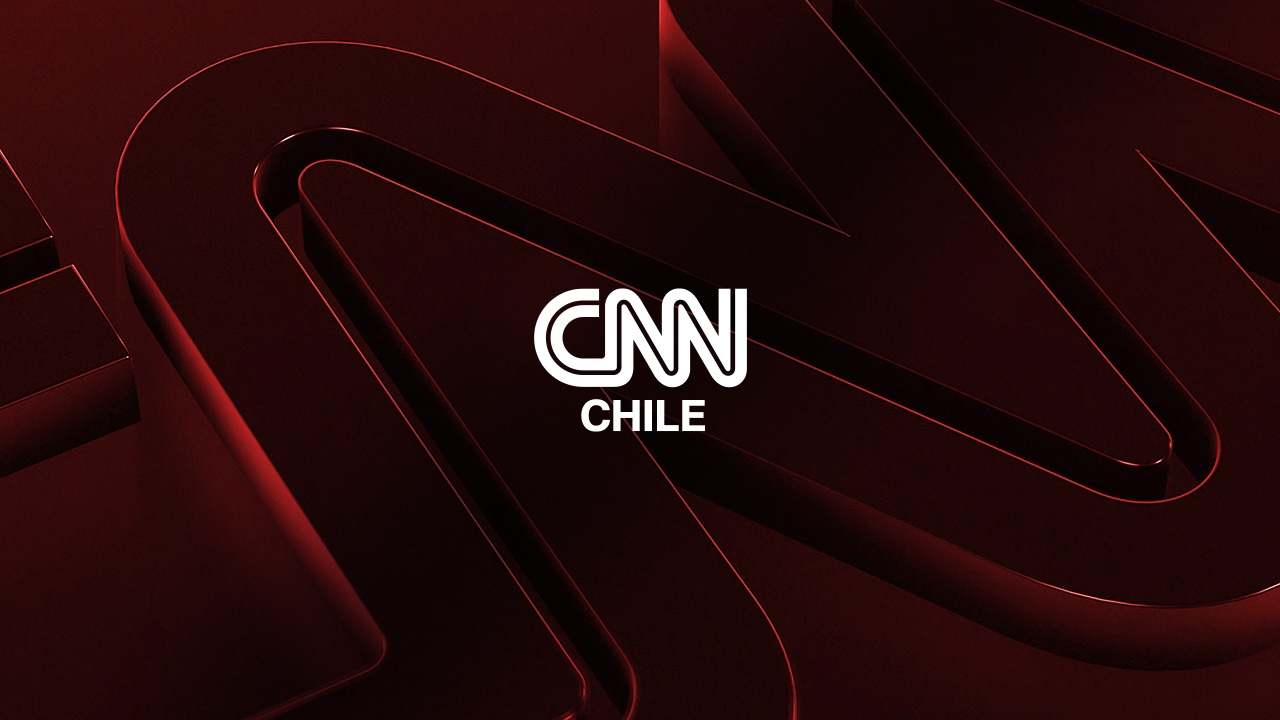
What can we do? We can continue to put presure through social networks, raising a strong voice, in a peaceful, democratic, but strong and decisive way. Mobilizing is the only way that these people listen, because look, it is assumed that in the Senate there is opposition, which had the majority, but the Government is calculating that it has the votes of the entire right-wing bloc plus those of, among others, Carolina Goic, former presidential candidate of the Christian Democrats, Felipe Harboe, who is now supposed to want to become a constituent, the favorable vote of Jorge Pizarro, former president of the Christian Democracy who was once mentioned in the SQM case, of former Foreign Minister José Miguel Insulza, a socialist senator, would be voting in favor of this, Lagos Weber, at one point Alejandro Guillier voted in favor, but now he turned around a little and said he will vote against it.
Can you clarify what you said, that whoever abstains is voting in favor…
This is key, because when these hypocrites want to help Piñera and pay no cost, they do it in a deceptive way, they abstain. The problem is that in certain votes, abstention is added to approval and this is what is going to happen now. For example Goic abstained from the project of the second withdrawal of Piñera’s project, but she knew perfectly well that with that abstention she was going to join in the rush and finally, there the second Piñera project was generated, which also ended up causing the parliamentarians’ project to fall in the Constitutional Court.
So now you know it, and here I tell people to listen to me carefully: those senators who when the TPP-11 is put to the vote, either if they approve or abstain, what they are doing is supporting the TPP-11, abstention is equal to approving it. In fact, I would say that it is worse, because it is hypocritical, so be careful with these people. What I tell people is to look at www.senado.cl, put where it says senators, click where it says Carolina Goic, Lagos Weber, Jorge Pizarro, Felipe Harboe, José Miguel Insulza, there are their emails, let’s tapestry them with emails so that they know what the people want, so they know that we have to defend and we are going to defend the constituent process.
They try to put a smoke screen on us, but this is the important thing, if this is approved, the constituent process will be sabotaged, which has the support of 80% of the citizens, and this Congress, a Congress that was repudiated by 80% of the people when they were asked if they wanted them to participate in the drafting of a new Constitution and they were told no, they were told that here they wanted a Constitutional Convention. The only way to try to prevent this is active mobilization, there is no other way to try to do it.
I understand that a president has a jurisdiction, he cannot be judged and all that, but does that end for Sebastian Piñera, once he finishes his term?
It runs out and also these crimes against humanity are not subject to this jurisdiction. The truth is that Piñera can be investigated today, in fact we are doing it, what cannot be done is to accuse him, take him to a trial in Chile if you have the position of president of the Republic, once you lose it, you lose that advantage, that jurisdiction and we could take you to trial in Chile.
But I insist, I believe that in some way it will be put together, they will try to build a scenario so that these causes come to nothing and in this event we are going to go to the ICC, we are not going to let ourselves be won by the typical formula in which here in Chile the serious causes that affect high authorities and big business are put to an end.
It is a very difficult path, we are not naive, we have it clear from the material and legal point of view as well, but we have worked in this scenario and we are developing it and we will execute it if necessary,
I have the regrettable conviction that in our country the conditions do not exist to take Piñera to a criminal trial, so that the serious charges for crimes against humanity that exist justifiably against him can be heard, and this allows us to go to this international body.
What happens if Piñera, after his term ends, decides to flee the country?
Remember that Julio Ponce Lerou is not and has not been President of the Republic, he has not held any position, and what protects him in Chile is his huge wallet and the network that he has created. I think it is the other way around, that Piñera’s danger is to leave Chile, in fact he does not go out much, except for some visits that are heavily guarded, because it may be that he will have the same fate as Pinochet. It must be remembered that it has been established, that there is a kind of international jurisdiction, that any court is competent to hear these crimes against humanity, which is not just any crime, they are crimes that repulse the conscience of humanity and that is why they have this special regime.
I believe that he is going to hide somewhere in Chile, he has a lot of money, he has an ‘environmental profile’ in his little group ABC-1, which is also a great hypocrisy if one analyzes the projects that have been encouraged and been approved during his government that prey on the environment and surrounding communities.
We are going to pursue him wherever he is and if he goes abroad, we also have the means, especially if we manage to escalate this cause internationally. That is why I believe that Piñera is very worried and with justified reason. We are many lawyers, many people, many victims who are going to follow this until the end so that some justice is done in this case.
